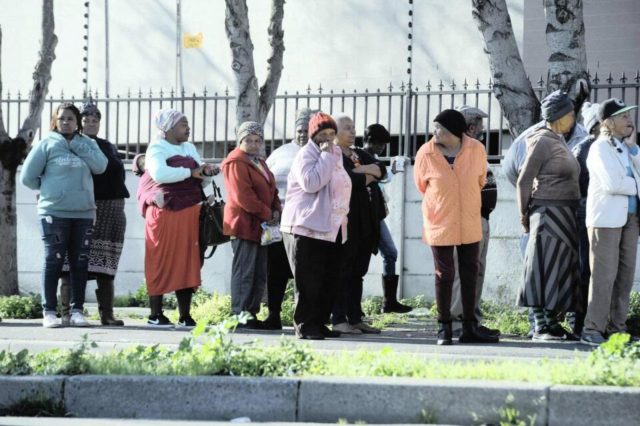There are almost 2 000 outstanding child welfare court cases in the Northern Cape.
THERE are almost 2 000 outstanding child welfare court cases in the Northern Cape.
This is according to the HOD for Social Development in the Province, Hendrina Samson, who was addressing a parliamentary briefing by the Department of Social Development on progress made in terms of the foster care process.
The meeting followed Social Development’s commitment to eradicating the foster care backlogs in the wake of a North Gauteng High Court order on foster care orders that will lapse at the end of November this year.
It has been reported that the foster care orders of more than 150 000 children nationally are due to expire at the end of 2019 and a further 97 000 in 2020. This could leave almost two-thirds of the children in foster care without a grant.
Ground Up reports that according to Section 159 of the Children’s Act, foster care grants expire after two years, unless extended by order of a children’s court. Lapsed court orders have been costing tens of thousands of orphaned children their grants since 2010.
The Centre for Child Law has been at loggerheads with the department to have the issue resolved for years. In 2011, it filed an urgent application with the Pretoria High Court against the Minister of Social Development. The court extended existing foster care grants for three years to give the department time to create a “comprehensive legal solution” to solve the crisis in the foster care system.
But when three years had passed, the centre and the department again found themselves in court in 2014. The minister applied to extend the existing order, keeping the current grants in place. The court ruled that by December of 2017, a comprehensive solution needed to be found.
As the deadline approached in October 2017, with no solution yet, the centre again went to court. It argued that the minister’s failure to “produce a comprehensive legal solution” was “unconstitutional, unlawful, and invalid”.
In November 2017 the court granted the national and provincial Departments of Social Development as well as the South African Social Security Agency (Sassa) a 24-month extension to continue payment and management of over 200 000 foster care orders that were due to lapse. This deadline ends at the end of November.
However, neither the Children’s Amendment Bill nor the Social Assistance Amendment Bill have been deliberated on by the social development portfolio committee and provincial departments are still currently required to manually renew all foster care orders before they expire.
In the Northern Cape there are less than 196 social workers to manage the outstanding cases.
In her presentation to the parliamentary committee, Samson pointed out that the provincial baseline for outstanding child welfare court cases was 1 981 while the provincial department had managed to complete 500.
She added that there were no blockages from the side of Sassa, the challenge was that the department was dependent on the Department of Justice to hear the court cases. To deal with this challenge, the provincial department was intensifying its engagement with the courts so that the outstanding court cases are dealt with.
The other challenge is that the social workers in the Northern Cape are so focused on these court cases that they are not able to deal with other social work matters such as gender-based violence and substance abuse.
Martha Bartlett, MEC for the department, said at the meeting that they were motivating their social workers to work around the clock and give progress reports so that the foster care cases are dealt with in their province.
During the portfolio committee meeting, the committee heard from seven provinces on their Foster Care Progress Report to meet the November 28 court deadline.
“Overall, from a baseline of 84 225 outstanding cases at the start of September, 32 269 cases have been completed over September and the first two weeks of October 2019. The outstanding balance is 51 956.
“The provincial breakdown of the remaining cases to be dealt with by the November 30, 2019 deadline are: Mpumalanga 510; Northern Cape 904; Limpopo 2 717; Free State 4 780; Eastern Cape 5 067; Gauteng 5 405; North West 7 013; Western Cape 8 250; and KZN 18 492.”
In a summary of the meeting, it was pointed out that various reasons were given for the delay, including the court case backlog in the magistrate’s courts; requirement for unabridged birth certificates that cost R75; Limpopo magistrate’s courts insisting on a 30-day waiting period to advertise for fathers; and KZN lacking required verification of evidence.
KZN spoke about fraudulent grant claims due to grant beneficiaries not being available when contacted or unable to provide proof of address.
The director-general said DSD envisaged that the provinces needed more time and the department would be applying to the North Gauteng High Court to extend the deadline of its court order by at least 24 months.








